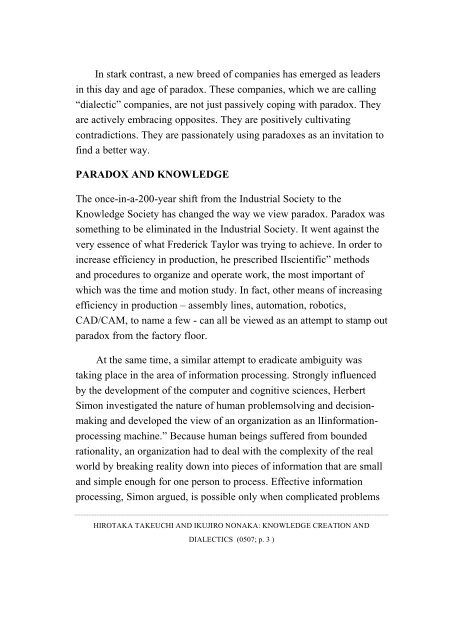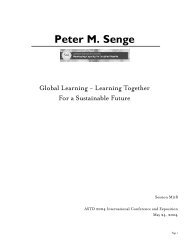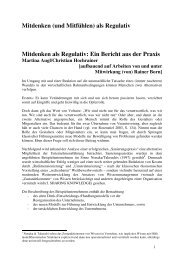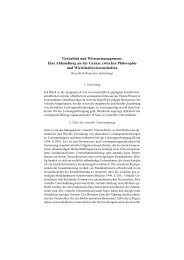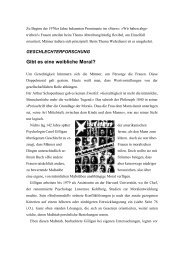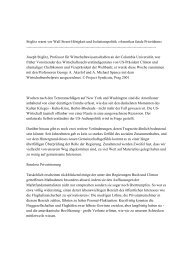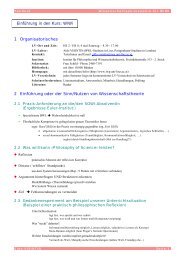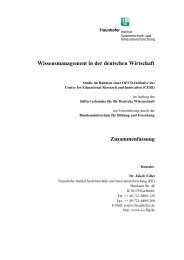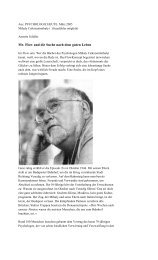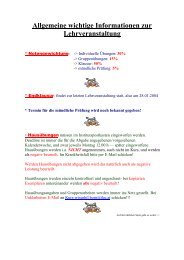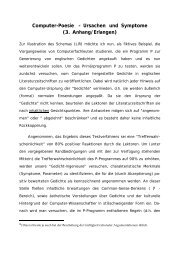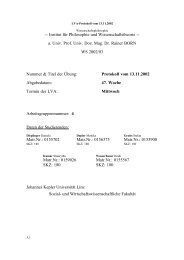KNOWLEDGE CREATION AND DIALECTICS
KNOWLEDGE CREATION AND DIALECTICS
KNOWLEDGE CREATION AND DIALECTICS
You also want an ePaper? Increase the reach of your titles
YUMPU automatically turns print PDFs into web optimized ePapers that Google loves.
In stark contrast, a new breed of companies has emerged as leaders<br />
in this day and age of paradox. These companies, which we are calling<br />
“dialectic” companies, are not just passively coping with paradox. They<br />
are actively embracing opposites. They are positively cultivating<br />
contradictions. They are passionately using paradoxes as an invitation to<br />
find a better way.<br />
PARADOX <strong>AND</strong> <strong>KNOWLEDGE</strong><br />
The once-in-a-200-year shift from the Industrial Society to the<br />
Knowledge Society has changed the way we view paradox. Paradox was<br />
something to be eliminated in the Industrial Society. It went against the<br />
very essence of what Frederick Taylor was trying to achieve. In order to<br />
increase efficiency in production, he prescribed IIscientific” methods<br />
and procedures to organize and operate work, the most important of<br />
which was the time and motion study. In fact, other means of increasing<br />
efficiency in production – assembly lines, automation, robotics,<br />
CAD/CAM, to name a few - can all be viewed as an attempt to stamp out<br />
paradox from the factory floor.<br />
At the same time, a similar attempt to eradicate ambiguity was<br />
taking place in the area of information processing. Strongly influenced<br />
by the development of the computer and cognitive sciences, Herbert<br />
Simon investigated the nature of human problemsolving and decisionmaking<br />
and developed the view of an organization as an lIinformationprocessing<br />
machine.” Because human beings suffered from bounded<br />
rationality, an organization had to deal with the complexity of the real<br />
world by breaking reality down into pieces of information that are small<br />
and simple enough for one person to process. Effective information<br />
processing, Simon argued, is possible only when complicated problems<br />
HIROTAKA TAKEUCHI <strong>AND</strong> IKUJIRO NONAKA: <strong>KNOWLEDGE</strong> <strong>CREATION</strong> <strong>AND</strong><br />
<strong>DIALECTICS</strong> (0507; p. 3 )


